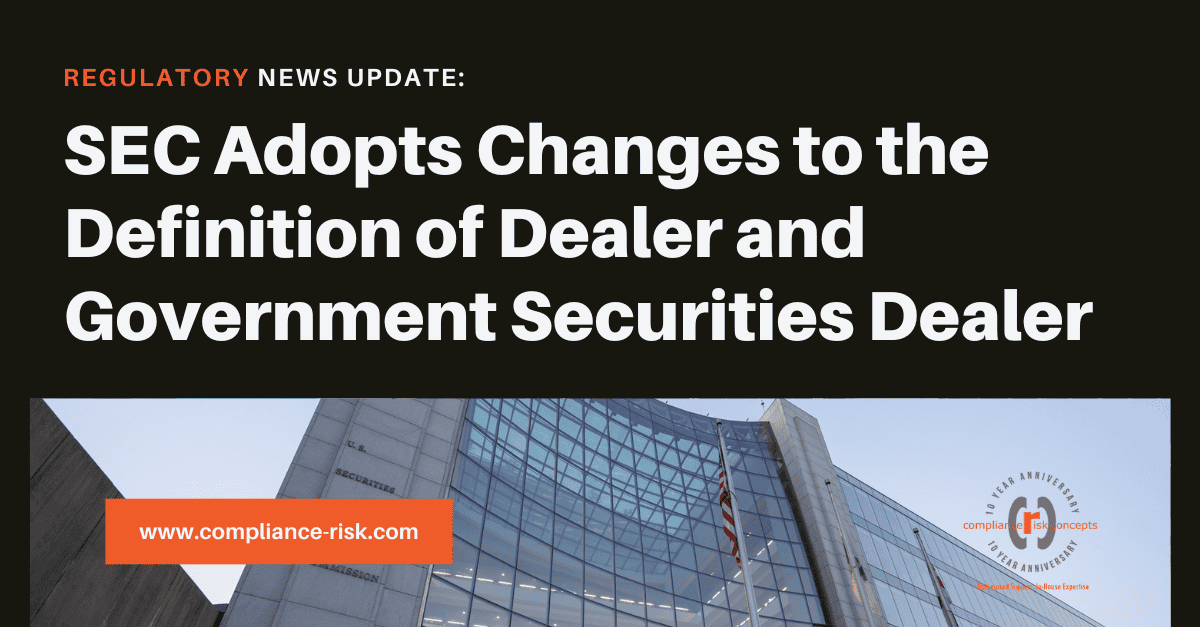
What: The SEC adopted final rules that significantly expand the definitions of “dealer” and “government securities dealer”. The final rules require certain market participants that take on significant liquidity-providing roles to register with the SEC, become members of a self-regulatory organization (“SRO”), and comply with federal securities laws and regulatory obligations.
Who: The SEC’s analysis suggested that proprietary or principal trading firms (“PTFs”) and private funds and advisers are the entities most likely to be affected by the new rule. This may include some hedge fund strategies, such as those that involve automated or high-frequency trading.
When: The compliance date will be in April 2025.
Why: The SEC is concerned that some market participants act as de facto market makers but do so without registration, and as a result, the SEC believes that investors and the markets lack important protections that result from an entity’s registration and regulation under the Exchange Act.
How: The new rules further define the phrase “as a part of a regular business” in Sections 3(a)(5) and 3(a)(44) of the Exchange Act to identify certain activities that would cause persons engaging in such activities to be “dealers” or “government securities dealers.” The final rules establish two non-exclusive ways in which a person will be determined to be engaged in a regular pattern of providing liquidity to other market participants “as part of a regular business”:
- Regularly expressing trading interest that is at or near the best available prices on both sides of the market for the same security, and that is communicated and represented in a way that makes it accessible to other market participants (“expressing trading interest factor”); or
- Earning revenue primarily from capturing bid-ask spreads, by buying at the bid and selling at the offer, or from capturing any incentives offered by trading venues to liquidity-supplying trading interest (“primary revenue factor”).
Why it matters: Absent an exception or exemption from the final rules, covered market participants would be required to register with the Commission under Section 15(a) or Section 15C, as applicable, become a member of an SRO, and comply with federal securities laws and regulatory obligations and applicable SRO and Treasury rules and requirements.
Firms should keep in mind that the FINRA new membership application process takes time. Generally, FINRA has a 180-day review period that is not triggered until an applicant submits a “substantially complete” Form NMA. Although there is around ten and a half months until the compliance date, firms should not delay in determining whether they will be affected by this rulemaking so that if they must pursue registration, it can be started as soon as practicable.
CRC has deep experience and expertise in the FINRA new member application (NMA) process. If you think you may be affected by this rulemaking, please contact Mitch Avnet to setup an introductory discussion: (646)346-2468 | [email protected]






